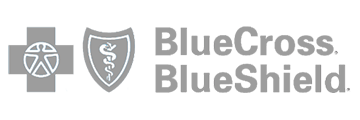Substance Abuse
Is Suboxone Addictive? And Other Questions
Medically Reviewed By
Written By
Last medically reviewed February 6, 2025
Substance Abuse
Medically Reviewed By
Written By
Last medically reviewed February 6, 2025
Contact us today so we can hear more about your story and determine from there the best course of action for your highly specific needs.
Opioid addictions to drugs like heroin, Oxycontin, Fentanyl, and Vicodin are powerful addictions, which are as much chemical as medical. Many times these addictions require “replacement therapy” or other medical means to keep addicts from using drugs and beat their addictions for good. Luckily, there are many drugs approved by the FDA and other national medical bodies that can help to treat opioid and other addictions.
While there are many drugs available to treat opioid addiction with medication, there is a fairly new drug called Suboxone that is showing promise to help addicts break their addictions. Subxone is relatively new on the market and becoming more popular for opioid treatment. Studies have shown that Suboxone can be an effective treatment for opioid addiction.
The opioid crisis is still raging in the United States. Many people are dying from overdoses and other complications of Opioid use. Is Suboxone a solution to this crisis?
The short answer is, it’s one (powerful) tool in our arsenal against opioid addiction and overdose. But there are many misconceptions around the drug and its use. What is it and how does it work? Is Suboxone addictive and can it be abused?
Below, we’ve tried to answer some of these questions in plain English so you and your loved ones can have a more clear idea if Suboxone might be right for you, or those you love who are addicted to opiates. We caution: any decision to take medication for an opioid or other addiction must be undertaken with a physician or other medical professional. This is simply a primer on the medication so you can understand more about what treatments are available.
Suboxone is a drug used for treating addiction to opiates like heroin, Vicodin, Fentanyl, and Oxycontin. It is a combination of drugs (in one dose) that studies show may be more or just as effective as other medical methods for treating addiction to opiates. It is an interesting development in the medical field because it potentially has fewer side effects and is potentially less addictive than other alternatives.
It is a combination of the drugs Naloxone, also known as NARCAN, and buprenorphine. You may know Naloxone as a drug used to revive people experiencing opioid addictions administered via a nose spray. Buprenorphine is a drug used to treat addiction. Both of these drugs are also used separately, but Suboxone is a recent combination.
Suboxone works to relieve symptoms of withdrawal from heroin and other opiates. It does this through a partial “replacement” method, where a patient’s brain receives signals like they were taking an opiate, but they don’t get “high”. This is the effect of the Buprenorphine. Mixed with Naloxone, it’s likely a safer option than Buprenorphine alone.
Doctors believe Suboxone has less potential to be abused than some other drugs. While it may still be possible to abuse this drug, further studies need to be done to understand the long term effects. However, benefits need to be weighed against potential costs. As the Harvard Medical Center puts it, “The vast majority of physicians, addiction experts, and advocates agree: Suboxone saves lives.”
NARCAN is what’s called an “antagonist” to opiates, which means it blocks the opiate reception in the brain. By adding Naloxone to Buprenorphine it results, doctors and researchers think, less potential for it to be abused and for a user to become addicted.
Suboxone can be misused, like many other drugs, but when taken as prescribed by a medical professional, it is safe. There are differing opinions to how long Suboxone might be taken, with some doctors and researchers saying it may be beneficial to take over the long term and others only recommending it for short periods of time.
But while there are many drugs used to treat opioid addiction, Methadone is one of the most common replacement therapies. This drug, while it saves lives, is sometimes referred to as “liquid handcuffs” because of its potential for the need to be taken over long periods of time.
Because of this and other factors including decreased potential for misuse, Suboxone might be preferable.
The short answer is, yes. There is no silver bullet for treating addiction. No pill you or your loved ones can take can “cure” anyone of addiction. But Suboxone is a powerful tool in the arsenal in becoming a non-user of opiates and staying that way.
In the words of one study, “Despite substantial evidence for its efficacy and well-developed models of care, buprenorphine [and Suboxone] remains underutilized.”
As we mentioned above, there is no silver bullet to kill addiction. A combination of therapies is almost always necessary to help users stay drug-free. But If you or someone you love is struggling with addiction, help is available.
If you think a medication for treating addiction, like Suboxone, might be right for you or your loved one, then give us a call. We offer medically assisted detoxification and treatment, as well as a host of other therapies, and we are looking forward to discussing treatment options with you and your family. We can be reached by phone at 888-981-8263 and we are looking forward to speaking with you.






